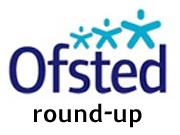Ofsted round-up – This week: Councils and a charity make the mix

Milton Keynes Council, Milton Keynes
Summary of grades awarded:
Effectiveness of provision Satisfactory: Grade 3
Capacity to improve Good: Grade 2
Achievement and standards Satisfactory: Grade 3
Quality of provision Satisfactory: Grade 3
Leadership and management Satisfactory: Grade 3
Equality of opportunity Contributory grade Good: Grade 2
Sector subject areas:
Information and communication technology Satisfactory: Grade 3
Visual arts Good: Grade 2
Classical and modern foreign languages Satisfactory: Grade 3
Preparation for life and work Satisfactory: Grade 3
Family learning Satisfactory: Grade 3
Part of the neighbourhood service directorate, Milton Keynes Council (MKC) provides adult and community learning through its adult and community education (ACE) service. At the time of the inspection, 2,136 learners were enrolled on non-accredited courses and 1,110 on accredited courses.
The inspection found that the overall effectiveness is satisfactory with learners developing good social and workplace skills. Although success rates on most accredited short and long courses have significantly improved, they still only remain satisfactory overall. Target setting and the recording of learners’ achievement is inadequate on many courses, however learners generally feel that they are on the right course.
Key strengths within MKC include a good range of courses to meet community needs, particularly effective strategic management, good partnership working and good promotion of equality of opportunity. However Ofsted feel they could improve their low success rates at level 2 on accredited courses, their incomplete implementation of procedures to recognise and record learners’ progress and achievement and also improve the proportion of good or better teaching.
With achievement and standards being satisfactory, this is acknowledged in the self-assessment report. Success rates on accredited courses are satisfactory overall, and success rates on accredited short courses and on level 1 long courses have significantly improved and are now satisfactory.
Surrey Hills Onward Learning, Surrey
Summary of grades awarded:
Effectiveness of provision Satisfactory: Grade 3
Capacity to improve Satisfactory: Grade 3
Achievement and standards Satisfactory: Grade 3
Quality of provision Satisfactory: Grade 3
Leadership and management Satisfactory: Grade 3
Equality of opportunity Contributory grade Satisfactory: Grade 3
Sector subject area:
Preparation for life and work Satisfactory: Grade 3
Established in 1996, Surrey Hills Onward Learning (SHOL) is a registered charity and company limited by guarantee. SHOL has a contract with Surrey Learning and Skills Council (LSC). Since the previous inspection, the LSC funded provision has changed significantly.
The inspection has found that the overall effectiveness of SHOL is satisfactory with overall success rates being very high and improving in literacy and numeracy. Teaching, learning and assessment are satisfactory, however the inspection has found that teachers are making insufficient use of technology within lessons and are insufficiently planned to meet the needs of individual learners.
Ofsted has found that SHOL’s key strengths are good progress and overall success rates in literacy and numeracy, good action to meet the needs of learners with multiple barriers to participation, good partnership work to widen participation and very good support and development for teachers. However the areas that need to be improved are the insufficient planning for individualised learning, insufficient use of information and technology, insufficient target setting and weak quality assurance.
Overall success rates are very high in literacy and numeracy at 98% in 2007/08 with a significant improvement in numeracy, where overall success rates rose from 48% in 2006/07 to 100% in 2007/08. Progression rates are satisfactory, with 29% of the learners who completed a course in 2007/08 taking further courses with SHOL. Although success rates have declined in 2007/08 for GCSE’s, they remain satisfactory at 71% in English and 64% in mathematics. The decline was not recognised in the provider’s self-assessment.
Isles of Scilly Council, Isles of Scilly
Summary of grades awarded:
Effectiveness of provision Satisfactory: Grade 3
Capacity to improve Satisfactory: Grade 3
Achievement and standards Satisfactory: Grade 3
Quality of provision Satisfactory: Grade 3
Leadership and management Satisfactory: Grade 3
Equality of opportunity Contributory grade Satisfactory: Grade 3
Sector subject area:
Community Learning Satisfactory: Grade 3
Adult and community learning (ACL) was established on the Isles of Scilly in 1999 and the provision has significant importance to the community under 2000 adults, as there are no colleges or other providers of post-16 education on the islands. Devon and Cornwall Learning and Skills Council (LSC) funds ACL provision.
The inspection has found that the overall effectiveness of the provision is satisfactory with the council also demonstrating satisfactory capacity to improve. Although the inspection grades do not show an improvement on the grades of the previous inspection, the service had worked well within limited resources to provide comprehensive adult learning opportunities for this isolated community.
The self-assessment process is currently inadequate, but substantial work is underway to address this. The December 2007 self-assessment report was found to be descriptive and not inclusive of strengths or weaknesses. Ofsted has found that ACL’s key strengths include good progression, good teaching by particularly knowledgeable tutors, responsive course provision, strong partnership working to extend learning opportunities and a highly innovative approach to minimise the impact of remoteness.
The investigation has found that the council has made insufficient progress in identifying sources of external support to develop the provision and the council has identified that external support is required to provide additional expertise and keep up to date with developments in ACL. The service has benefited from recent external consultancy but has not identified longer term arrangements for external support to ensure that the provision continues to improve.







Responses